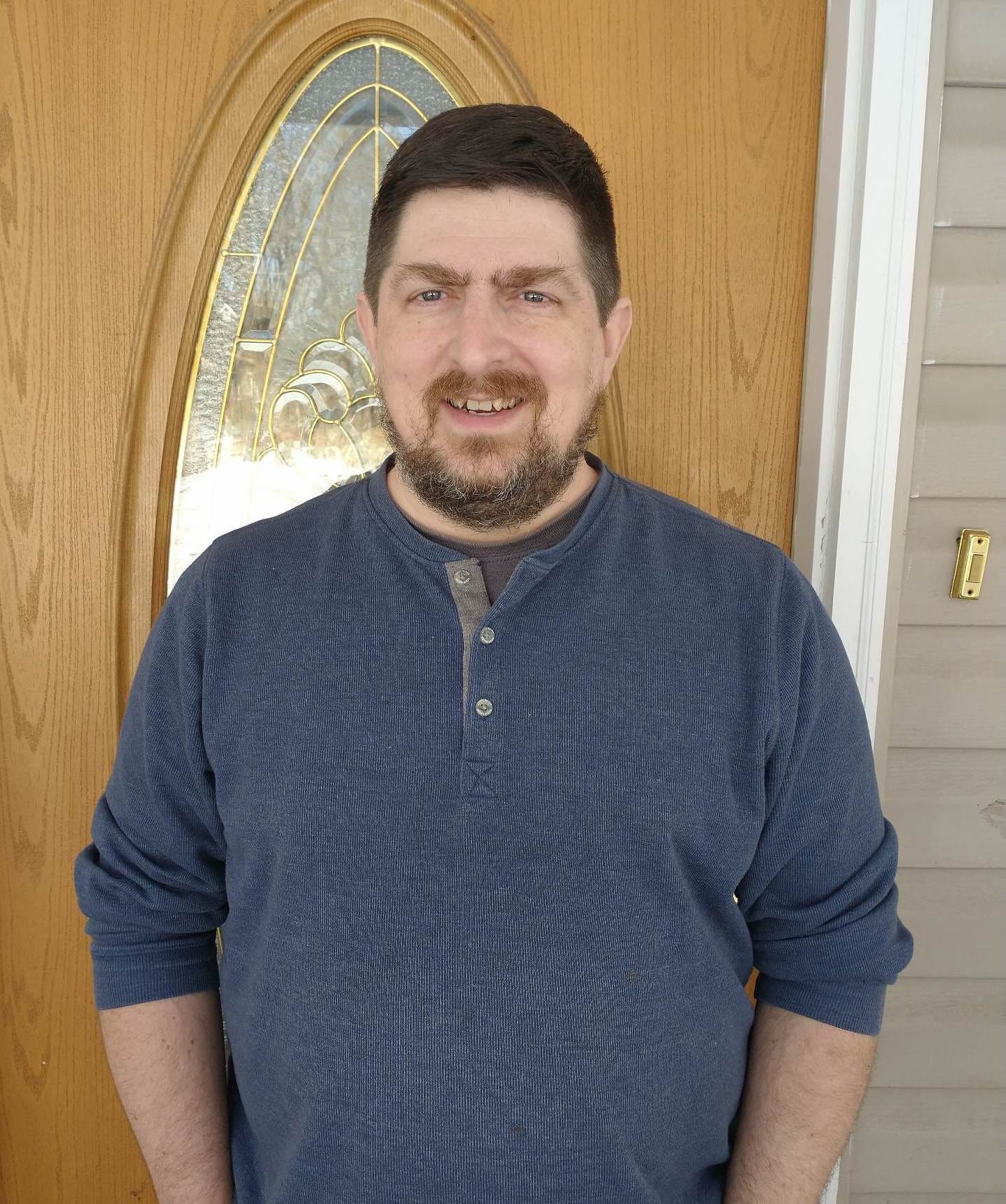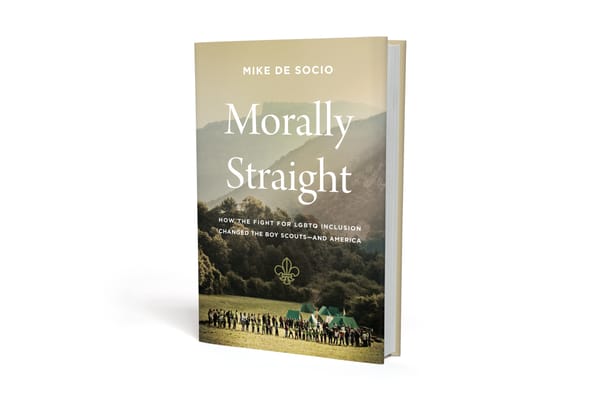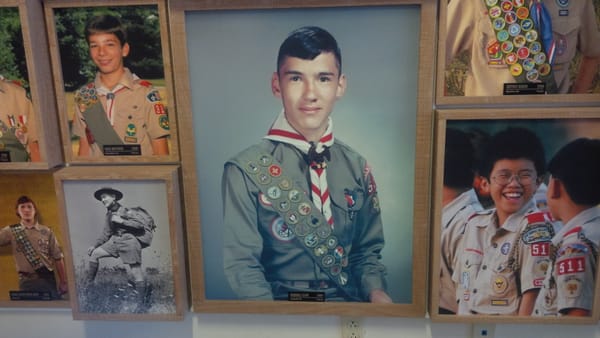'The Final G:' Why Bob Kinkaid wants the BSA to make one more policy change
"We don't have to take away religion. We don't have to change the Oath and Law. We can just say, if you define God as a higher power who's not necessarily supernatural ... then that's okay."
We’re in the thick of the holiday season, and for many people, that means celebrating a major religious holiday this month.
With near-ubiquitous messaging about Christmas and Hanukkah, however, it’s easy to forget that a rapidly growing segment of the U.S. population has no religious affiliation at all: 29 percent, according to a recent Pew Research poll.
That’s been on the mind of Bob Kinkaid lately.
Kinkaid grew up in Scouting, and while he came just short of earning his eagle scout rank, he loved his experience in the program. When he had kids of his own, he got them involved as soon as he could—and his oldest just became an eagle scout.
But there’s still one thing about the program that bothers Kinkaid: the requirement that scouts declare a belief in God. I talked to Kinkaid about the policy changes he’d like to see, and the Facebook group he created to build support for them. Our conversation is below, lightly edited for brevity and clarity.

Mike De Socio: Can you tell me a bit about your religious background?
Bob Kinkaid: My background was Protestant Methodist, a kind of Christian conservative family. I love my parents, but disagree with them on politics and religion; I went my own way on both. I consider myself to be pretty progressive and all in with inclusivity of all types. Over the years, I figured out my own religious path. I became a Unitarian Universalist. Really high level, it feels like a church, you go on Sunday, and they have an uplifting message. And there's people you get to know and there's fun stuff to do, and there's community service. There’s all that, minus the, “You must believe in God,” stuff. Because I don't believe in that kind of traditional God. So I still am religious, sort of, but I'm also an atheist. It sounds conflicting if you don't understand what Unitarian Universalism is.
That makes sense the way you just explained it. So you’re personally an atheist. At what point did you realize that wasn’t compatible with Scouting?
Fast forward 20 years, I have kids that are coming into the program, and I want to do the program, but I've become more aware of the “declaration of religious principle,” and some verbiage in the bylaws as well. As I learned about those things, like a lot of people, I became frustrated. Why is this organization that's really got a great moral foundation, why are they stuck on this language that's so exclusive? Especially when, as a world, we're very religiously diverse, including atheists, agnostics, humanists of all stripes. So, why is this organization that I love, why are they technically discriminatory to atheists?
So that's the piece that that I never got on board with. And then just over the years I realized, nobody's really doing anything about this particular issue. So I think, what can I do? Oh, let me start a Facebook group. So, four years ago, I started a Facebook group. There's lots of other advocacy groups, and I love all the stuff you do and the people you talk to, I'm 100 percent on board with all that. But I wanted a place to say, “Hey, wait a minute, people who don't believe traditional religions should be welcomed in Scouting, too.”
In the final days of Scouts for Equality, I know there was some discussion about tackling this religious policy, but they decided to leave it unfinished. Do you see yourself filling that void?
I'd love to. I don't have a background in organizational change, or the kind of politics that you need to know to get that kind of thing done. I spoke with someone from Scouts for Equality, and he kind of laid out, here's what you need to do … there's this whole kind of step-by-step thing that he [explained to me]. And like you said, SFE accomplished their core mission, and they didn't see this—even if they wanted to keep going—they didn't really see a short-term path. I'd love to pick it up, but what I need is more people who have experience in accomplishing that kind of change, to help with strategy.
So then what you’re trying to do with the Facebook group is more so build community?
Pretty much. I want the world to know that there's a community of people out there, that there's a significant number of people that are active scouters, that are either in the closet, or just quietly don't make a big deal out of the religious piece. And ultimately, we think [that] needs to be changed. And I think that's the starting point is to gather the community and say, “There's lots of us out here who think that this piece of Scouting should change.”
I imagine there's a lot of people that just skate by on this issue. You can write whatever you want on the application, no one's checking. So why is it important to explicitly change that if it's not a huge obstacle?
There's two reasons. One is, there's still a lot of confusion. If you look at the various Facebook groups, there's regularly questions about, “How am I supposed to handle the religious requirements? What do we do? Is there an atheist ban?” And there sort of is, but they're also sort of isn't, because like you said, if you're willing to check the box, and don't rock the boat, and don't make a big deal at your eagle [board of review], then you're fine. But we shouldn't have to be—and I hate to use the word ‘in the closet,’ because I don't think it's appropriate here—but I really don't think that's right. I don't think that meshes with Scouting values.
The trick is, without any organized group representing people who want change, they craft the message for us. Other people say, “People who want change want to throw out the religion altogether.” And I don't think that's true. We don't have to take away religion for those who like it. We don't have to change the Oath and Law. We can just say, if you define God as a higher power who's not necessarily supernatural, you believe in a higher power, it's just not a supernatural deity, then that's okay. And then that can placate the people who really like to do the God piece. But it also takes away the need to be quiet about it.
Now that there's a lot of diversity, equity and inclusion work going on within Scouting, do you think that there's an appetite for this type of change?
I'd like to hope that we're all allies with the other DEI folks. … But the passion for changing the policy on atheists isn't necessarily there completely, as much as it is to want to see inclusion in all other areas.
Is there anything else you want to say?
I think most of the people on my Facebook group tend to agree: We don't have to change the Oath and the Law. You don't have to remove God. But we do need to clarify—we're asking BSA to please clarify their language so that we don't have these ongoing debates. And make it clear that if your God is not a supernatural God, or you choose not to call it God—aka you're an atheist—that's okay. And BSA can make that change without turning the world upside down, if they were willing.
Programming note: This is my last Friday newsletter of the year. I’ll be taking the next two weeks off for the holidays. See you in 2023!


